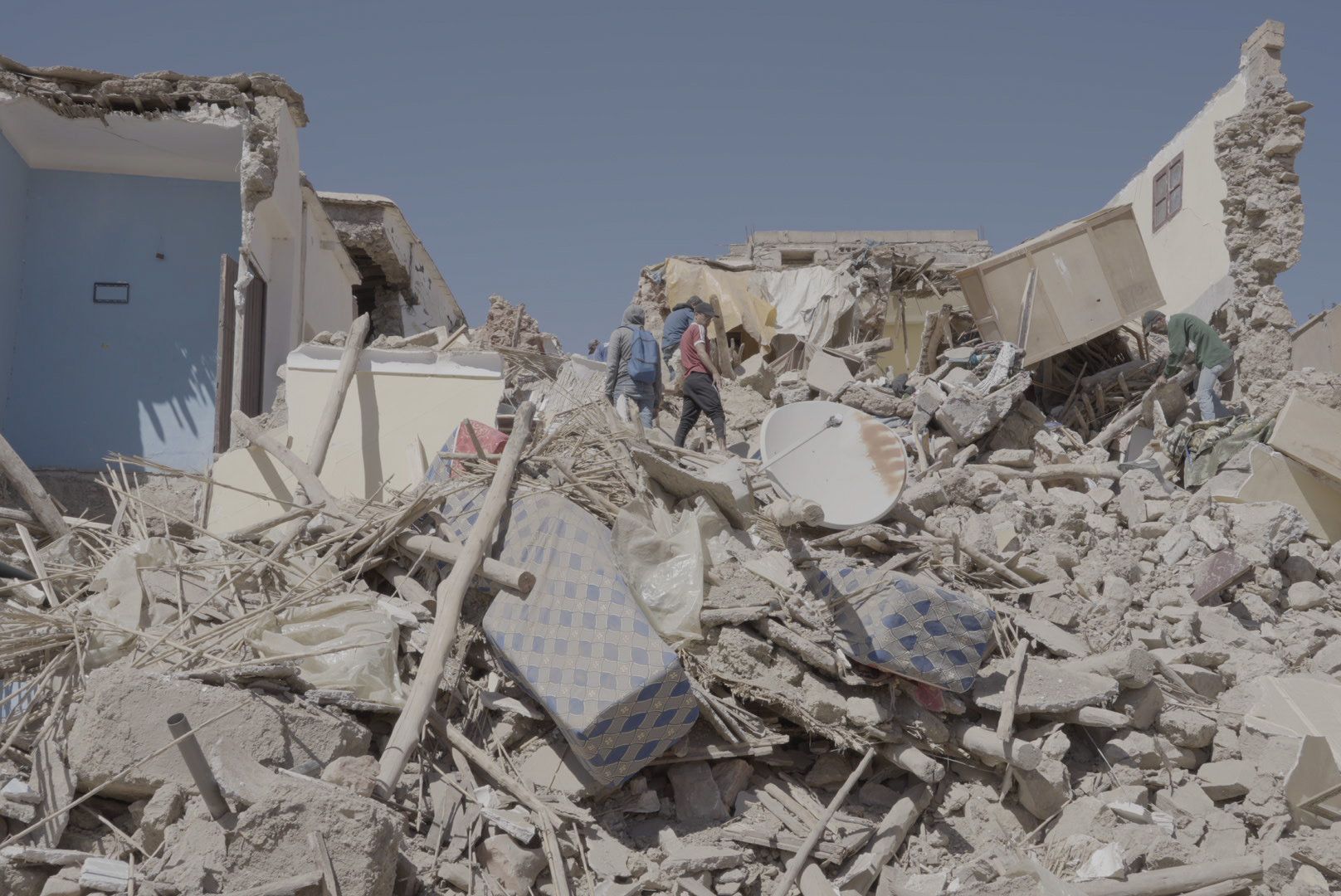The villages around Asni, a beautiful market town built into a hillside in Morocco’s High Atlas mountain range, are hard to access at the best of times. Narrow tracks snake up rocky ridges and plunge into picturesque valleys; small groupings of traditional mud-built homes, villages of just a few hundred people, dot the mountainsides. The powerful earthquake that shook the region, which is about an hour’s drive south of Marrakech, on Friday evening, leveled most of those homes, trapping their inhabitants under the rubble. Thousands have died and the official toll of 2,122 is sure to rise.
In Moulay Brahim, a village of about 3,000 that was badly hit, the death toll on Sunday morning stood at 20 people — until rescuers pulled two more lifeless bodies from under a mud-brick home that had pancaked to the ground. An elderly man watching collapsed into his wife’s arms in sobs as their loved ones, covered in dust and debris, were carried off.
“We should never have issued permits to build these houses,” said Hisham, a father who had made his way to a refuge set up in a large parking lot in Asni, which has become the hub for search and rescue in the area. “They’re either badly built, or they’re on too steep an angle on such mountainous terrain.”
Amid the crumpled dwellings, Mohammed, a thin, older man looked on in disbelief. “When I heard that there were deaths here, I came by motorbike from Marrakech with a friend. I have three close friends who live in this village,” he said. “My three friends are dead.”
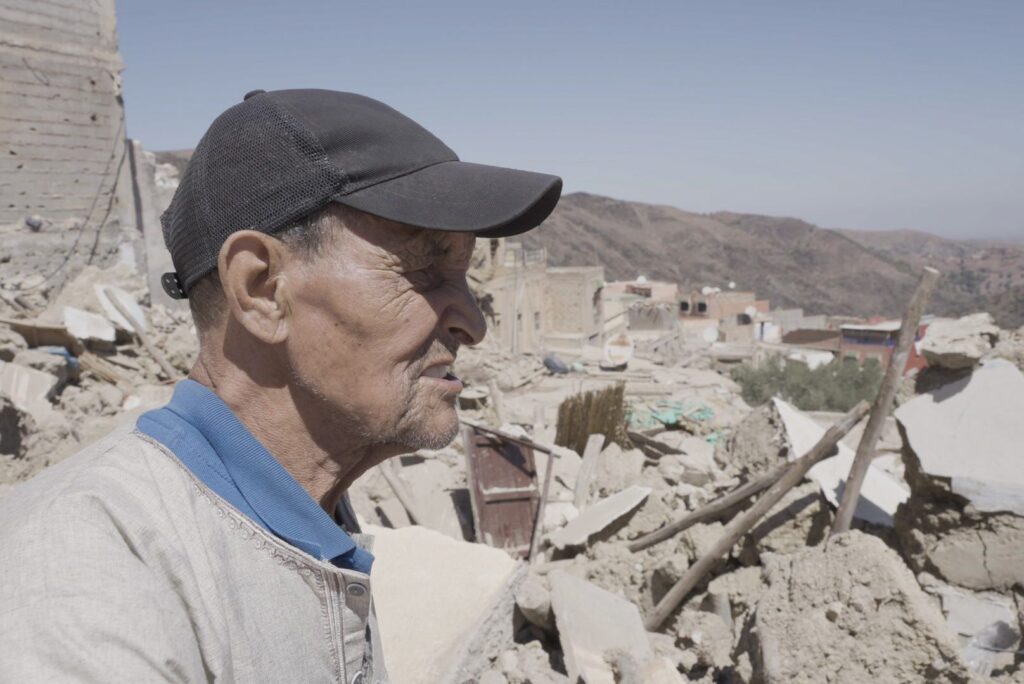
The race against the clock to find those trapped is on, but the remote location, the terrain and the power and data cuts that the quake caused are wreaking havoc with the efforts. New Lines arrived in Asni late on Saturday, just as the residents were bracing for a night sleeping outdoors. Of the houses left standing, many had deep cracks in the walls, threatening to collapse at any moment, particularly if an aftershock came.
“It was like in Syria and Turkey. They thought it was over, but there was another earthquake,” said Mohammed, a young man from the village who had spent the night outside, despite the biting cold of early fall nights in the mountains. “We’re all afraid to go home. It’s dangerous.”
They were right to worry. On Sunday morning, the town was rocked by two aftershocks. “I was sleeping in the car when it started to move,” said another young man, Youssef. His wife startled awake and he tried to soothe her but the tremors were unsettling. More houses collapsed. More people became trapped.
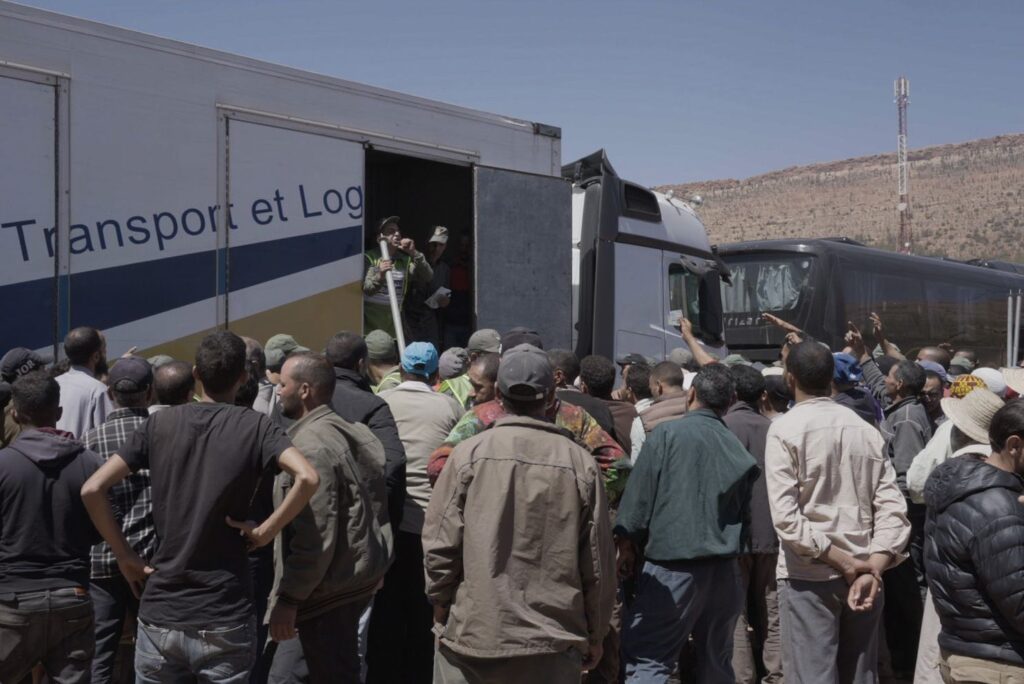
After efforts to clear the major roads leading into the region, the military arrived in Asni on Saturday, setting up tents for the survivors and administering first aid to the injured. But with just 40 tents and thousands homeless, the scene became chaotic. In front of the makeshift camp, men were jostling for a tent to shelter their families, waving their identity cards to prove they were from the destroyed villages. “Why does he get a tent and I don’t?” one man shouted from the angry crowd. The frustration and desperation of those who had lost everything was growing.
Off to the side, an old man in a traditional hooded robe watched the scene unfold in despair: “I arrived at 8 o’clock this morning to show my card. My house is destroyed. I’ve tried several times but it’s impossible, I’m not on the list yet,” said Larbi, an air of desperation in his voice. “My last meal was 24 hours ago. The souk and grocery stores are closed. We have nothing to eat.” Next to Larbi, Omar, a young man from the region, was also waiting patiently. He had walked down the rocky mountainside from his village the morning after the quake, hoping to find a tent, some water and food for his family. But there was nothing in Asni for him. “I left my wife and three children up there on their own, thinking I could bring them something,” Omar said. “They are hungry and cold at night. Nobody listens to us here.”
For those who managed to get a tent for their families, there was still the matter of finding food and water — the tents were empty, providing only a bit of shade in the heat of the day and warmth as the mercury plunged come sundown.
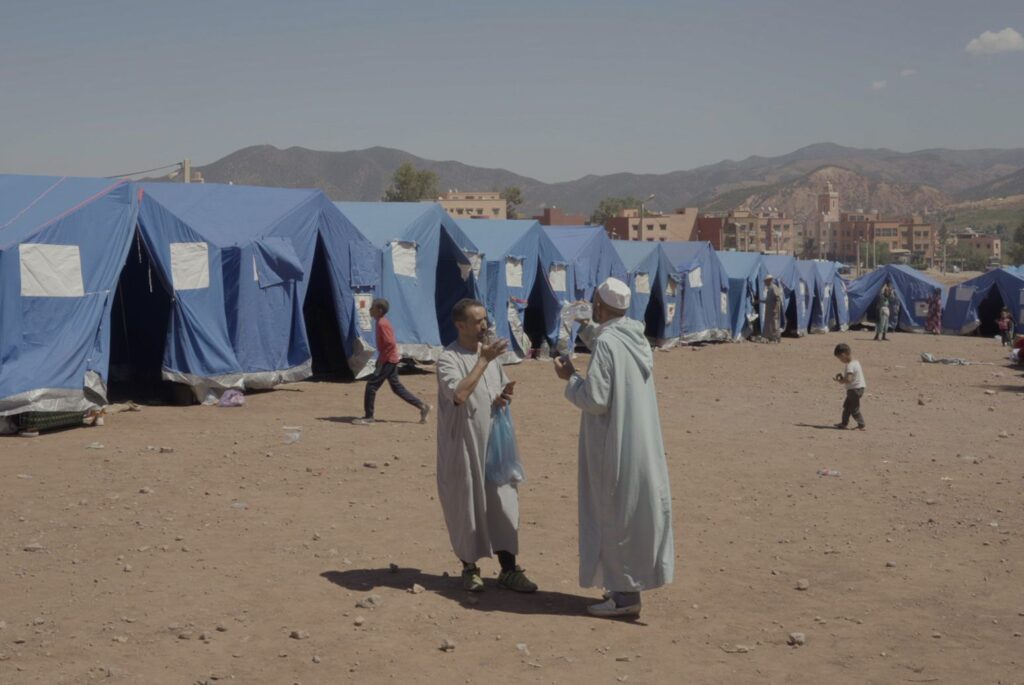
From time to time, a vehicle stopped at the edge of the camp to distribute food and water — volunteers coming from the closest cities, bringing ad hoc aid. “It’s people from Marrakech who come to bring a few bags of food, but look how quickly it goes,” said Omar, pointing to a car that had just pulled up and was immediately surrounded by a crowd. “People are helping as best they can, but the authorities are doing nothing.” On the outskirts of the camp, the soldiers were setting up medical tents but no one was allowed to enter the area.
By late afternoon on Sunday, many had grown impatient and angry. Taking matters into their own hands, a group of young people began weaving pieces of reed together to build a hut. “During the day, the sun beats down, and at night it’s very cold,” said Oussama, one of the young people building the makeshift dwelling.
“The government is doing absolutely nothing. Not one soldier has brought us water or food, even though they’re right next door. There are old people out in the sun and cold at night,” said an angry Hussein. He is the head of a household of 20 extended family members and the stress of taking care of everyone in the disaster is weighing on him. “Everyone’s counting on me, but there’s nothing I can do,” he said, frustrated.
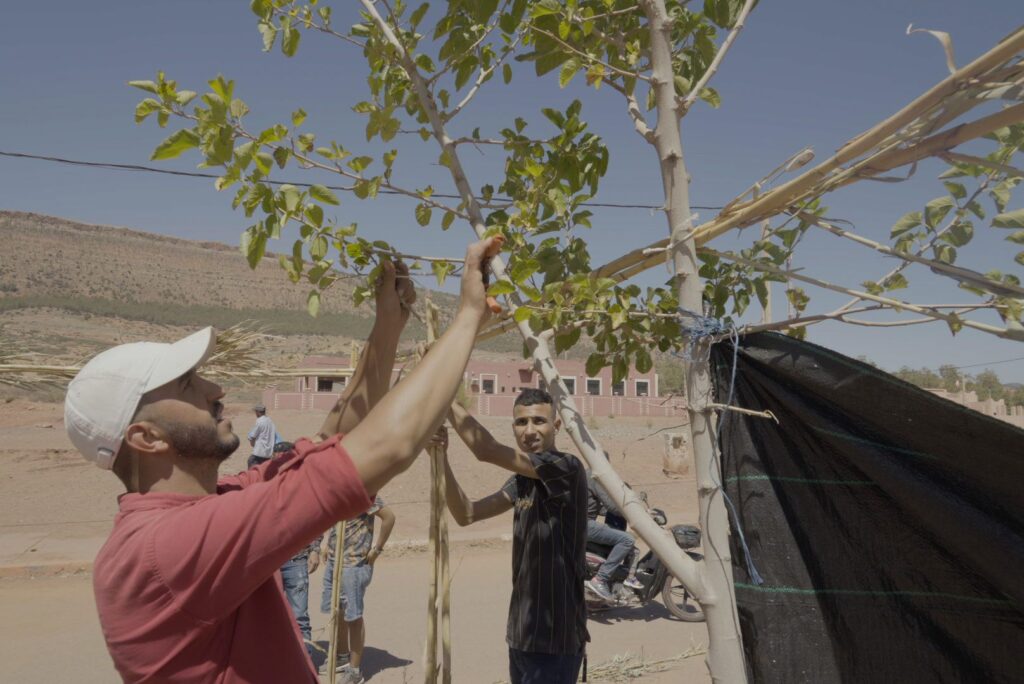
Beyond the immediate needs of those who have survived, there is the creeping worry about the future. The region, already remote and economically challenged, relied on tourism to boost the livelihoods of its residents. Villages were often used as jumping-off points for trekking in the mountains, popular with tourists from Europe and North America.
Mohammed, an old man wearing a turban, said he’d left his work as a nomadic herder and settled in a village to work in tourism. “I used to live off of tourism here, but the tourists aren’t coming back now,” he said. “How long are we going to live in these tents, with no money?”
Back in Moulay Brahim, a group of local men were scaling the rubble of an imposing building that had collapsed. They were looking for personal belongings, dried goods, tools, valuables, household items. As they picked over the remnants of their homes, one man, not pausing from his work said, “Anything we can salvage will be useful for the future.”
“Spotlight” is a newsletter about underreported cultural trends and news from around the world, emailed to subscribers twice a week. Sign up here.



